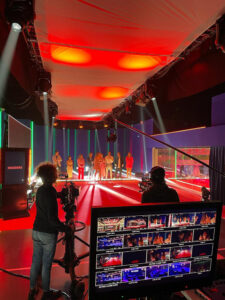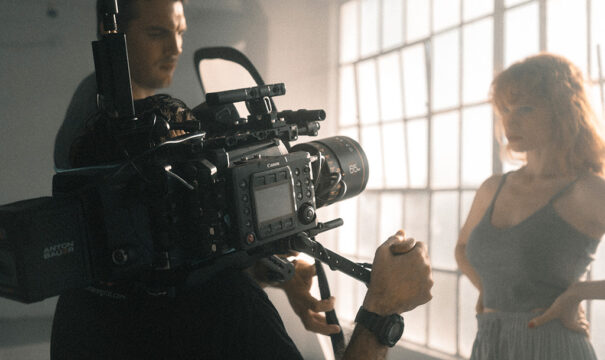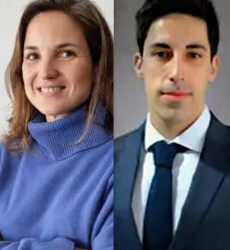Actores, artistas y otras figuras en TV y cine: una dimensión legal desconocida
Patricia Mariscal e Imanol de Hipólito, de Bardají & Honrado, arrojan luz sobre el concepto de actores y artistas en obras audiovisuales televisivas y cinematográficas, figuras que esconden una dimensión legal más amplia de lo que aparenta.
Con carácter general, las personas que aparecen en pantalla representando un papel, bien sea en una película, en una serie o incluso en un programa de televisión, consiguen transmitir una fluidez y creatividad mucho mayores de las que podríamos aportar la mayoría del público. Incluso podríamos afirmar que las personas que se suben a un escenario o que son capaces de ponerse tras una cámara están dotadas de un cierto “sentido artístico”, y que gracias a él consiguen provocar emociones en los espectadores.
Por ello, podría parecer obvio que al hablar de estas personas nos refiramos a ellas como “artistas” o “actores” dependiendo del caso. Sin embargo, ni todas las personas que aparecen en pantalla son artistas, ni todos los artistas pueden ser considerados actores. Ambos términos esconden una dimensión legal más amplia de lo que en un primer momento se pudiera llegar a pensar y tienen implicaciones jurídicas no sólo desde el punto de vista de la propiedad intelectual, sino también en los ámbitos laboral y fiscal.
 Identificando la labor artística
Identificando la labor artística
Desde la óptica del Derecho de autor, actor y artista significan lo mismo; básicamente el actor es un artista que opera en el ámbito audiovisual. El artículo 105 del de la Ley de Propiedad Intelectual (“LPI”) se refiere al artista intérprete o ejecutante como “la persona que represente, cante, lea, recite, interprete o ejecute en cualquier forma una obra”.
El precepto contiene dos elementos clave para determinar si la labor de una persona es “artística”: la actividad (representar, cantar, leer, recitar, interpretar o ejecutar) y la obra sobre la que se proyecta tal actividad. Cabe pensar por tanto que si estos dos conceptos concurren en una misma situación estaremos ante una interpretación o ejecución protegible por el Derecho de autor y, de hecho, en la gran mayoría de casos es así.
Qué duda cabe que la actuación de un actor profesional que interpreta el papel de un determinado personaje en una película es una actividad artística protegible de las previstas en el artículo 105 LPI, pero ¿puede decirse lo mismo de un presentador de un programa de televisión? ¿Y de un profesor que imparte una clase en la universidad? La respuesta no es fácil ni evident, ya que no todas las actividades que conllevan una interpretación o ejecución y que se proyectan sobre una obra intelectual convierten en artista al sujeto que las lleva a cabo. En este sentido, resulta discutible que la actividad de leer en voz alta una novela convierta en artista a la persona que recita, de la misma manera que no creemos que el figurante de una serie de televisión pueda ser considerado artista a los efectos del artículo 105 LPI.
Un debate que continúa
Dado el margen de interpretación que ofrece el artículo 105 LPI sobre el concepto de “artista”, muchas de estas cuestiones han llegado a los tribunales, pero ni siquiera a través de estos pronunciamientos es posible establecer un criterio claro de interpretación para determinar cuándo estamos ante una actividad artística y cuándo no. El debate no se circunscribe al plano meramente teórico, pues la adquisición de la condición de artista lleva consigo el reconocimiento de una serie de derechos morales y patrimoniales sobre la interpretación que se traducen en este último caso, en la posibilidad de recibir una retribución adicional por tal concepto.
La Sección 28 de la Audiencia Provincial de Madrid, en sentencia de 6 de noviembre de 2020, posteriormente confirmada por la Sala de lo Civil del Tribunal Supremo en su reciente Auto de 25 de enero de 2023, determinó que la actividad que llevaba a cabo un “experto en letras” en el programa de televisión Cifras y letras no era artística, pues el reclamante no ejecutaba un guion ni se mostraba al público como un personaje de ficción, sino como un perfil personal propio. Apuntaba la Audiencia que el demandante no acreditó haber llevado a cabo actuaciones que sí podrían haber sido consideradas artísticas, como cantar una canción o recitar un poema, sino que se limitó a afirmar de forma genérica su condición de artista sin especificar la obra concreta interpretada o ejecutada ni el momento en que se interpretó o ejecutó. Además, el Tribunal consideró que era irrelevante para la calificación como artista del “experto en letras” el hecho de que figurase en los títulos de crédito del programa o que en su contrato se previese una cesión de derechos de propiedad intelectual en favor de la productora.
Tras las últimas reformas, la condición de artista se otorga no sólo a los artistas en el sentido de la LPI, sino también a un amplio elenco de sujetos que operan en el sector de las artes escénicas, audiovisuales y musicales.
En el ámbito laboral, por su parte, el término artista tiene un significado diferente, mucho más amplio que el previsto en el artículo 105 LPI y sirve para determinar la aplicación o no a una relación laboral del régimen especial previsto en el Real Decreto 1435/1985, de 1 de agosto, por el que se regula la relación laboral especial de los artistas en espectáculos públicos. La aplicación del régimen especial de artistas frente al régimen laboral común tiene una serie de implicaciones específicas, como es la posibilidad de realizar contratos laborales de duración determinada, disfrutar de una menor retención fiscal o el cálculo de la indemnización por fin de contrato.
Tras las últimas reformas, la condición de artista se otorga no sólo a los artistas en el sentido de la LPI, sino también a un amplio elenco de sujetos que operan en el sector de las artes escénicas, audiovisuales y musicales, incluyendo a personas que realizan actividades técnicas o auxiliares necesarias para el desarrollo de dicha actividad tales como la preparación, montaje y asistencia técnica del evento, la sastrería, peluquería y maquillaje y otras actividades entendidas como auxiliares.
 Múltiples fuentes para determinar la labor artística
Múltiples fuentes para determinar la labor artística
De lo anterior se desprende que el concepto de artista que maneja la normativa laboral nada tiene que ver con el concepto de artista del artículo 105 LPI. Por ello, para determinar si a una relación laboral ha de aplicársele el régimen especial de artistas o el régimen común sería un error acudir a la definición de artista de la Ley de propiedad intelectual. Antes bien, habrá que estar a lo dispuesto en la normativa laboral y en concreto a lo dispuesto en el Real Decreto de artistas, el Estatuto de los Trabajadores y el convenio colectivo que sea de aplicación, si es que lo hay.
Habrá ocasiones en las que proceda aplicar a una relación laboral el régimen especial de artistas incluso cuando la actividad no sea en absoluto artística de acuerdo a la acepción más común del término.
Por ello, habrá ocasiones en las que proceda aplicar a una relación laboral el régimen especial de artistas incluso cuando la actividad no sea en absoluto artística de acuerdo a la acepción más común del término. En este sentido, cabe señalar la sentencia del Tribunal Superior de Justicia de Madrid de 27 de abril de 2020, que entendió que la actividad de un concursante de un reality de televisión debía ser considerada como actoral a los efectos de aplicarle el Convenio colectivo de actores y el Real Decreto de artistas. Según el tribunal: “si bien es cierto que la prestación del actor no puede considerarse como arte, no lo es menos que, al estar inmersa en un ensayo consistente en la grabación de su actividad cotidiana con otras personas contratadas para el mismo fin, actuaba en cierta medida teatralmente, ya que adoptaba un rol determinado (…) todo ello condicionados por la observación permanente por parte de la cámara de televisión y siendo tal actuación la que se presenta como un espectáculo (…)>>
En definitiva, ni todas las personas que aparecen en pantalla son artistas, ni todos los artistas son actores.
Patricia Mariscal e Imanol de Hipólito
Abogados en Bardají&Honrado
Did you like this article?
Subscribe to us RSS feed And you will not miss anything.

















